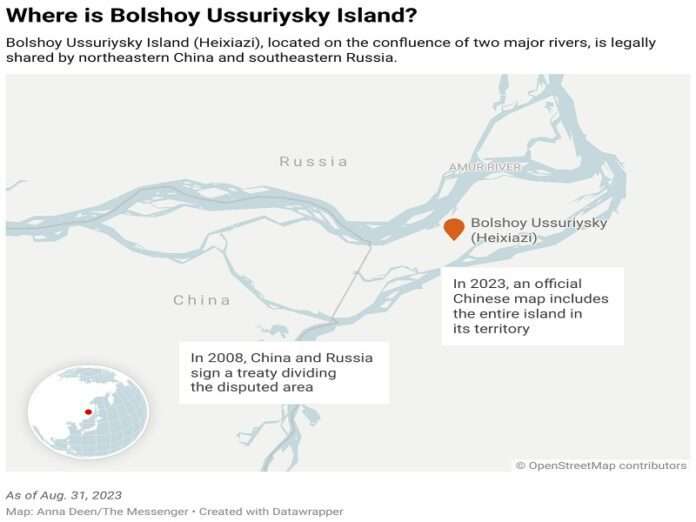Russian Ambassador to India Denis Alipov was asked on Friday about the scandal over China’s latest map that lays claim to parts of his host country’s territory, including those outside Beijing’s control. According to the Press Trust of India’s report that was republished by NDTV, he responded as follows: “For your information, there are some discrepancies on the Russia-China border as well. We do not exaggerate this issue with the Chinese side. And as we have noticed, India does not exaggerate this issue as well.”
Considering the sensitivity of this issue, it’s important to interpret what he said in a calm and measured way. To begin with, Ambassador Alipov confirmed that the latest map does indeed include the “discrepancy” of counterfactually depicting Chinese control over the Russian half of jointly partitioned Bolshoi Ussuriysky Island. Russian Foreign Ministry spokeswoman Maria Zakharova recently reaffirmed that no border disputes exist in Sino-Russo relations so this suggests that the aforesaid was a mistake.
The second point is that Ambassador Alipov was the first Russian official to acknowledge this. Regardless of whether that was by coincidence or design, it still shows that Russia and India are in the same position vis-a-vis China after the latter’s publication of its latest map. Awareness of this will help maintain popular trust between their countries after some Indians were disappointed with the clumsy way that the Kremlin choreographed President Putin’s decision to skip next weekend’s G20 Summit in Delhi.
Third, it’s now impossible to deny that sensitive differences exist in the Sino–Russo Entente like some in the non-Mainstream Media community have done unless they’re dishonest. That said, the fourth point is that Russia is “not exaggerat[ing] this” issue, nor any of the other ones that exist like their polar opposite stances towards India’s revocation of Article 370 that were detailed here. Fifth, Ambassador Alipov is reminding everyone of this selfsame position in his concise answer via the language that he used.
Saying “as well” when referring to “some discrepancies on the Russia-China border” diplomatically signals that Moscow regards other depictions in China’s latest map to be troublesome too, namely those laying claim to the entirety of disputed territory with India, especially regions outside Beijing’s control. The sixth point is that Ambassador Alipov is also diplomatically disagreeing with the Chinese Foreign Ministry spokesman’s innuendo that India is overreacting in its strong condemnation of that map.
Wang Wenbin was asked by China Daily about this on 30 August and said per the Chinese Foreign Ministry’s official transcript of his press conference that day that “We hope relevant sides can stay objective and calm, and refrain from over-interpreting the issue.” By saying that “India does not exaggerate the issue as well”, Ambassador Alipov is voicing support for India’s official protest against that map precisely because its depiction doesn’t align with Russia’s stance towards their border issue.
Altogether, these six points that were masterfully conveyed by Russia’s top diplomat in India through just three sentences prove that the Kremlin is displeased with China’s latest map, particularly because it mistakenly lays claim to his country’s territory but also due to its deliberate claims against India. China won’t rescind its second-mentioned claims, but Russia would still appreciate if it quietly issued a revised map that corrects the mistake of depicting Russia’s half of Bolshoi Ussuriysky Island as Chinese territory.








